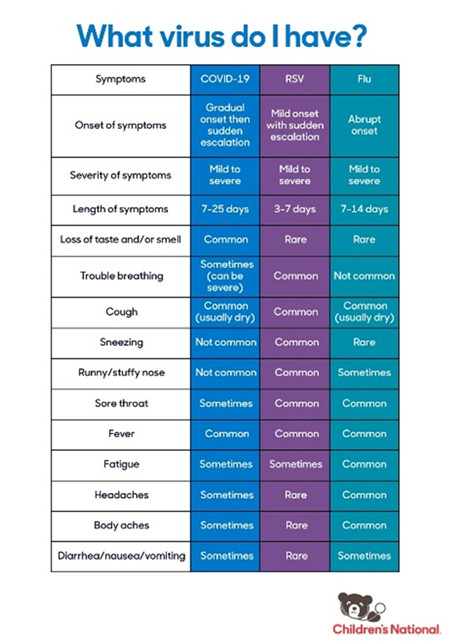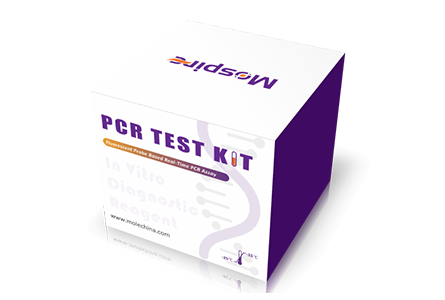



Autumn and winter are the seasons of high incidence of respiratory tract infections, so it is necessary for us to understand several types of respiratory tract infections (Covid-19, Influenza, Respiratory Syncytial Virus) in advance. Learning about their symptoms, prevention and treatment measures can help reduce the spread of the disease.
What is the flu?
Influenza (flu) is a contagious respiratory illness caused by influenza viruses that infect the nose, throat, and lungs (CDC). There are two main types of influenza viruses: influenza A and influenza B. Influenza viruses are prone to mutation. It is highly contagious, and the population is generally susceptible, with a high incidence. It can cause seasonal epidemics every year, and outbreaks sometimes will occur in schools, nurseries, nursing homes and other places where people gather.
What is RSV?
Respiratory syncytial (sin-SISH-uhl) virus, or RSV, is a common respiratory virus that usually causes mild, cold-like symptoms (CDC). However, RSV may cause severe respiratory diseases in infants and the elderly.
What is COVID-19?
The new coronavirus disease (COVID-19) is an infectious disease caused by the SARS-CoV-2 virus. The spread of the new coronavirus is highly infectious and concealed, and people of all ages may be infected.
What is the symptom?
COVID-19, flu, and RSV have some common symptoms, which can cause fever, cough, runny nose, fatigue, and even shortness of breath, and these three diseases may cause severe symptoms and complications. Among them, RSV is common in children under 2 years of age and the elderly, while Covid-19 has its unique symptoms-loss of taste and smell.
The following table shows the comparison of symptoms after infection with the three viruses:

Ref: https://riseandshine.childrensnational.org/covid-19-vs-rsv-vs-flu/
Why should we detect COVID-19, flu, and RSV?
Although the symptoms caused by influenza, RSV and COVID-19 are similar, the treatment methods are different;
Flu Treatment:
Some "antiviral drugs" prescription drugs can be used to treat influenza disease. US CDC recommends prompt treatment for people who have flu or suspected flu and who are at higher risk of severe flu complications, such as those with asthma, diabetes (including gestational diabetes), or heart disease.
CDC recommends four FDA-approved antiviral drugs to treat flu this season: Oseltamivir phosphate (available as a generic version or under the trade name Tamiflu), Zanamivir (trade name Relenza), Peramivir (trade name Rapivab), and Baloxavir marboxil (trade name Xofluza).
RSV Treatment:
US CDC recommends some measures to relieve symptoms:
1. Use over-the-counter anti-fever medicines and analgesics (such as acetaminophen or ibuprofen) to control fever and pain. (Do not give aspirin to children.)
2. Drink enough fluids. It is important for people with RSV infection to drink enough fluids to prevent dehydration (loss of body fluids).
3. When having difficulty breathing or being dehydrated, you may need to be hospitalized. In the most severe cases, a person may need additional oxygen or intubation.
Note: Before giving your child an over-the-counter cold medicine, please consult your healthcare provider. Some medicines contain ingredients that are not good for children.
COVID-19 Treatment:
At present, there is a lack of effective antiviral drugs for COVID19. Isolation treatment, symptomatic and supportive treatment are the main ways. Critical cases should be treated in the ICU as soon as possible.
Therefore, it is essential to detect virus timely, determine the cause, and implement the effective targeted treatment. This will not only help patients receive timely and accurate treatment but also help control the spread of the virus.
How to detect Covid19, influenza, RSV infection?
Mole 2019-Novel Coronavirus, Influenza Virus, Respiratory Syncytial Virus Nucleic Acid Test Kit is intended for qualitative detection of ORF1ab gene of 2019-Novel Coronavirus (2019-nCoV, SARS-COV-2), M1 gene or NS1 gene of Influenza Virus and F gene of RSV in the specimens including Oropharyngeal swabs, sputum and Bronchoalveolar lavage fluid. It can detect three pathogens in one tube at the same time, which can be used for the infection of three pathogens early diagnosis.

Mole Human Respiratory Virus Detection Kit can be used to qualitatively detect 18 respiratory viruses including COVID-19, Influenza Virus, and Respiratory Syncytial Virus,etc. This product can be customized to detect the number and category of viruses according to market needs
How to prevent Covid19, influenza, RSV?
1. Get vaccinated, the vaccine can effectively get the chance of infection and prevent severe illness.
2. Wear a mask in public places.
3. Maintain good hygiene and wash hands frequently.
4. Stay away from infected people
5. Reduce the frequency of going out and reduce close contact.
Ref:
COVID-19 vs. Flu vs. RSV: How to tell the difference between respiratory infections | Labcorp
Coronavirus, Flu & RSV: Symptoms, Prevention, Vaccine | Health Hive (rochesterregional.org)
COVID-19, RSV, and the Flu Could Be a Triple Threat This Fall (verywellhealth.com)
RSV (Respiratory Syncytial Virus) | CDC
Symptoms and Care of RSV (Respiratory Syncytial Virus) | CDC